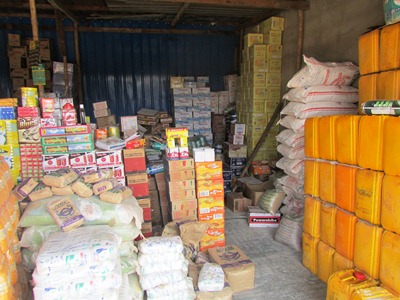Food prices soar as inflation persists in Jonglei state
February 13, 2017 (BOR) – Prices of food communities are persistently increasing in South Sudan’s Jonglei state, as the world’s youngest nation continues witnessing inflation.

A bag of maize flour, which was SSP 4,000 last week, has risen to SSP 5,000 this week, yet it cost SSP 3,600 in January.
Abdalaman Osman, one of the retailers in Bor Marol market, said the continuous increase in dollar has affected their business, as small retailers, like him, cannot make any profits.
“In this country, prices are increasing every day. I am not happy with this increase because I am not making any profit. People ask me always why prices are increasing but I am not the maker”, said Osman.
Mabior Kuol Ajok, the chairperson of chamber of commerce or supervisor, cited high dollar prices in the black market and high taxes levied on food commodities at borders as the main reasons why traders set high prices.
“Now, the dollar price in the black market is over SSP13,000, so traders who bring goods from Uganda come and set prices high, when we ask them, they say it is because of dollar. This is because we don’t control the dollar prices. Another problem is high taxation on these goods”, he said.
According to Kuol, the state chamber of commerce has been trying to control the prices of food commodities since December 2016, but little success had so far been attained.
“In December 2016, prices for food commodities were very high, up to SSP 4,000. It was a big problem, so traders sat down and they decided to bring in food commodities, especially sorghum from different places, which I reduced the prices to SSP 3,600 per bag”, he explained.
The prices for other items in the market are still increasing because of the increasing inflation of the SSP against dollar.
“The only solution is that, if the government goes out and buy these food commodities, bring them to the country and stock them in the stores for traders to buy from, then prices can go down for consumers to afford them”, said Kuol.
Analysts argue that lack of locally-produced food commodities in the country, coupled with the ongoing political instability caused the rise in inflation.
(ST)
